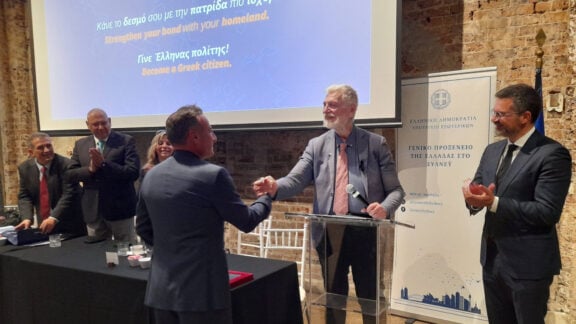Joanna Charaktis, 29, is one of the four Australians taking part in the 33-referee team appointed at the 2023 Women’s World Cup, alongside Kate Jacewicz, Casey Reibelt and Chris Beath.
Speaking of ‘quality first’ criteria for the selection of match officials, FIFA Referees Committee Chairman Pierluigi Collina said this had been a key contributor to the success of the previous tournament in 2019 in France.
“The aim for the FIFA Women’s World Cup Australia & New Zealand 2023 is to repeat that success and to convince again with excellent referees’ performances.”
Charaktis has been hitting one milestone after another in her footballing journey, having been appointed to the FIFA International Referees List – a select group of referees, who are qualified to officiate at international level – since her mid-20s.
“It opens up a door to a lot of different opportunities and a lot more hard work,” she had then told Neos Kosmos in an interview.
She started refereeing whilst playing football, ultimately making the switch at the age of 15 from competing with the Glen Waverley Soccer Club and Whitehorse United, to refereeing, a move she credits her father Jim for encouraging her to make.
Most recently in October 2022, Charaktis was amongst the 28 women who served as assistant referees at the FIFA U-17 Women’s World Cup India 2022.
Taking place between 20 July and 20 August in Australia and New Zealand, the 2023 tournament will be conducted with the input of 33 referees, 55 assistant referees and 19 video match officials.
It marks the first time ever that female video match officials have been selected for a World Cup, with preparatory seminars in Doha and Montevideo lined up in January and February for the selected match officials.
As part of their training they will be “reviewing and analysing video clips of real match situations and taking part in practical training sessions with players, which will be filmed to enable participants to receive instant feedback from instructors.”







